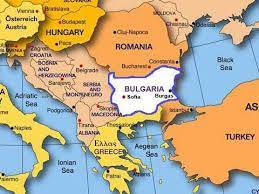The life expectancy of Bulgarians is already very low, but because of Kovid -19 it has decreased even more, by 2.2 years, which is a record for the EU. This shows a study by Eurostat, quoted by “Now”. According to inconclusive data for 2021, the pandemic has had a negative impact, shortening the lives of Europeans in almost half of the EU member states. The most serious decline was registered in Slovakia and Bulgaria (-2.2 years compared to 2020), followed by Latvia (-2.1 years) and Estonia (-2 years). Life expectancy in the EU has been steadily increasing in recent decades, rising by an average of 2 years per decade since the 1960s, according to Eurostat statistics. But the coronavirus has broken this trend. In 2021, some Western European member states have returned to predictable life expectancy, while others – especially in Eastern Europe, have experienced this year.
We remind you that according to a report quoted earlier this year by Euobserver, Romanians and Bulgarians are dying even younger than before because of Covid-19. Life expectancy in both Bulgaria and Romania decreased by 1.5 and 1.4 years, respectively, in 2020, which is twice the European average (0.7 years). In Bulgaria, like Romania, the “Covid-19 pandemic” has temporarily turned years of progress in life expectancy, which was already the lowest in the EU in 2019, the report said. Despite improvements in the health system over the last decade, life expectancy remains alarming, with life expectancy in Romania and Bulgaria increasing by four and two years respectively between 2000 and 2019, but still below the EU average with incredible six and eight years.
There is another negative trend – in Romania, women live on average eight years longer than men (78.4 years compared to 70.5), which is one of the most significant differences between the sexes in terms of life expectancy in the EU. Among the main factors leading to the shortening of the lives of many Bulgarians and Romanians is the sick health care system, the newspaper writes. The per capita spending on prevention in both countries is the lowest in the EU, the document said. The health system is understaffed and underrepresented.
In recent years, healthcare in both countries has consistently ranked last in the EU according to the Euro Health Consumer Index. Romania (661 euros per capita) and Bulgaria (626 euros per capita) spend less on their healthcare systems than any other member state, according to Eurostat, and are well behind the top of the list – Luxembourg, Sweden and Denmark, with over € 5,500 in healthcare costs per capita each year.
Another problem identified in the report is the lack of medical staff. For Romania, “the migration of medical staff has contributed to the shortage of health workers in the country, and the number of doctors and nurses per capita is well below the EU average. This has a negative impact on access to care and increases waiting times.” In Bulgaria, “several factors contribute to the shortage of nurses, including the low number of graduate nurses, the loss of trained nurses due to emigration, the aging workforce (the average age of nurses is over 50) and dissatisfaction with wages and working conditions” .







